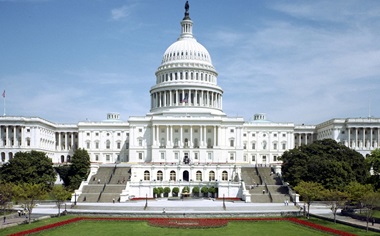The Endocrine Society has consistently advocated for increased federal funding for the National Institutes of Health (NIH). Earlier this month, the Appropriations Committee in the U.S. House of Representatives passed a funding bill on party lines that provides insufficient funding, dangerous policy riders, and proposes a massive restructuring of the NIH. The Endocrine Society called on Representatives to reject that bill. The bill, originally scheduled to be voted on by the full House of Representatives on July 29, now faces an uncertain future after the House adjourned for an early August recess following challenges passing other appropriations bills to fund the government. Meanwhile, the U.S. Senate remains in session through next week and the Senate Appropriations Committee is scheduled to consider its version of the funding bill on August 1. This past week, we spoke at a press conference to alert the media to concerns with the House bill. During the congressional recess, we will continue to meet with lawmakers about the proposal to restructure NIH and in September will participate in the Rally for Medical Research Hill Day by bringing member scientists into Washington DC to talk to their representatives about the importance of funding for NIH. We encourage our members to stay alert for communications from the Society with information on how you can weigh in at the right time to maximize your impact on the appropriations process.
The Centers for Medicare and Medicaid Services (CMS) released its proposed rule for the CY 2025 Medicare Physician Fee Schedule (MPFS) earlier this month. This rule updates payment policies and payment rates for Part B services furnished under the MPFS and makes changes to the Quality Payment Program (QPP). The Endocrine Society has prepared an analysis of the rule. You can find our summary of the rule here on our website. We have also created a payment chart for codes of interest to the endocrinology specialty.
Significant provisions in the proposed rule: While the overall conversion factor for CY 2025 is set to decrease by approximately 2.80%, the rule is expected to provide a 1% increase for endocrinology. The impact of the proposed rule’s policies on group practices and individual physicians varies based on practice type and the mix of patients and services provided to those patients. The Endocrine Society will urge CMS and Congress to provide more appropriate payments for endocrinology.
The rule also expands telehealth access by removing some restrictions on the use of telehealth codes, and it also adds audio-only services to the definition of a telehealth service. We have advocated for expanding access to telehealth and audio-only services and we are pleased to see that the agency has proposed this change.
Finally, the proposed rule would also expand the use of G2211 complex care code which can be billed by endocrinologists. CMS proposes to allow the G2211 add-on code to be billed when an Office/Outpatient (O/O) E/M code is reported on the same day as an annual wellness visit, vaccine administration service, or any Medicare Part B preventive service delivered in the O/O setting.
Every year, CMS requests our feedback on its proposed changes, and we respond by submitting a comment letter to the agency. The Endocrine Society will work with the Clinical Affairs Core Committee (CACC) to review and develop comments for CMS to consider while finalizing the rule. Comments to the proposed rule are due on September 9th.
This week, the Endocrine Society endorsed the reintroduction of the Access to Birth Control (ABC) Act, which was introduced by Representative Robin Kelly (D-IL) in the House of Representatives. U.S. Senators Cory Booker (D-NJ) and Patty Murray (D-WA) introduced companion legislation earlier this year in the Senate. The bill aims to ensure that anyone with a valid prescription is not denied or intimidated when requesting birth control or emergency contraception at pharmacies. The bill recognizes that contraception is an essential part of reproductive health care and is used for multiple health issues. The ABC Act addresses current challenges by ensuring patients have timely access to contraception at the pharmacy without delay, and addressing pharmacy refusals by guaranteeing that people receive necessary medication as determined by medical professionals. The Society will continue to advocate for protecting access to hormonal contraception, which is frequently prescribed by our members to treat a variety of conditions.

We rely on your voice to advocate for our policy priorities. Join us to show our strength as a community that cares about endocrinology. Contact your US representatives or European Members of Parliament through our online platform. Take action and make a difference today.